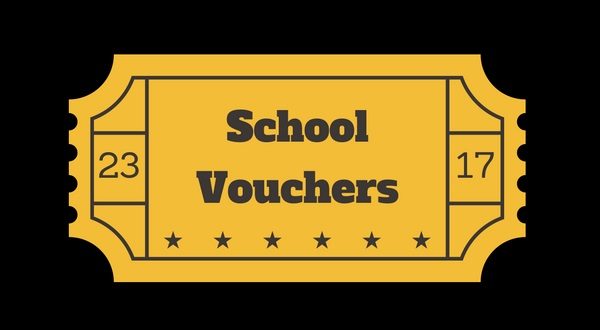
Arkansas is set to join the ranks of West Virginia, Arizona, Utah and Iowa as states that have recently passed universal voucher measures, with Gov. Sarah Huckabee Sanders’ education proposal moving one step closer to passage.
Senate Bill 294 easily passed the Arkansas House on Thursday with a 78-to-21 vote and will head to the Senate this week for a vote to concur on the bill’s amendment. If approved, which is likely, the bill will be sent to the governor’s office to be signed into law.
While voucher programs exist in states across the country, including Arkansas, the Republican governor’s voucher proposal would eventually be open to every student in Arkansas. Sanders’ education plan, commonly referred to as the LEARNS Act, would allow students to use state dollars to help with the cost of attending a private or home school.
In January, the Utah and Iowa legislatures passed similar universal school choice laws that would tie state dollars on education to students, allowing them to spend the money at private or charter schools. Arkansas’ bill followed a similar effort in Arizona, which passed an expanded voucher program last year.
Robert Enlow, president of Ed Choice, a pro-voucher education nonprofit based in Indianapolis, said the school closures during the covid-19 pandemic helped catalyze a renewed national push for what he called a “customization model” in education.
With many students sitting at home following along with classroom instruction via Zoom, the experience made parents realize they want more control over their child’s education, Enlow said.
“I think the pandemic certainly had something to do with that,” he said. “It’s really not about school choice, it’s about educational choice [for families].”
Arkansas already has a limited school choice program, the Succeed Scholarship, which offers state funding for students with disabilities or who are in foster care or the children of an active-duty military service member.
The LEARNS Act’s voucher program, called Educational Freedom Accounts, will be phased in over three years, beginning with the 2023-2024 school years. Students who receive an Educational Freedom Account will receive 90% of the state’s per-pupil funding from the previous year. For the 2022-2023 school year, the state’s per-pupil funding was $7,413.
In the first year of the program, Educational Freedom Accounts will be open to students who are eligible for the Succeed Scholarship, enrolling in kindergarten for the first time, and those attending an F-rated school. In the second year, the program will be open to students enrolled at a D-rated school, and in year three it will be open to all those eligible to enroll in a public school.
The Educational Freedom Accounts would cost $46.7 million in the first year, with the state anticipating 7,000 students will enroll in the program in its first year. The cost increases to $97.5 million in the second year with an estimated 14,000 students enrolled in the program, according to a fiscal study by the Arkansas Department of Education. Robert Brech, deputy director of budget at the Department of Finance and Administration, said the program will cost the state an estimated $175 million in the third year.
The omnibus bill caps the number of students who can receive an Educational Freedom Account, with 1.5% of the total public school enrollment in its first year, and 3% in its second year. In year three, when the program is open to all students, “there shall be no limitation on student participation in the Arkansas Children’s Educational Freedom Account Program,” according to the bill.
If the number of students applying for vouchers exceeds the amount the state has set aside, the Department of Education will establish rules promulgating which students get priority.
The Department of Education’s fiscal study did not include projections for how many students would be enrolled in year three of the program when each public school student would be eligible. However, Enlow said enrollment in voucher programs tends to grow exponentially to include 4% to 6% of the state’s student age population.
Enlow said Ed Choice consulted with Arkansas lawmakers and gubernatorial staff who crafted the LEARNS Act.
For the National Education Association, the nation’s largest teacher union, Sanders’ school choice initiative is not a novel solution to an old problem, but rather a continuing ideological fight over public schools.
“This has been proposed in Arkansas, and every time it has been defeated because of the Legislature’s support for their rural schools,” said Mary Kusler, the association’s senior director for advocacy and policy. “We also know that this an ideological goal for many — for many in the right-wing … so often we see elected leaders take this on as their big signature item.”
While some states have approved universal voucher programs in recent years, states such as Idaho and South Dakota have voted down expanded school choice programs.
Like Arkansas’ bill, Utah’s school voucher bill includes raises for teachers. Utah teachers will see a $6,000 salary and benefits bump.
Sanders’ bill includes a $14,000 increase in the starting salary for teachers, and $2,000 raises for teachers already making more than the proposed $50,000 a year minimum.
Kusler said lawmakers included popular proposals such as higher wages for teachers to help make unpopular ideas like vouchers more palatable to voters.
“The only way they were able to pass vouchers, or in the process [of passing] in Arkansas, was because they attached it to something that has bipartisan support, [such as] stepping up and supporting our educators,” Kusler said.
WebReadyTM Powered by WireReady® NSI










